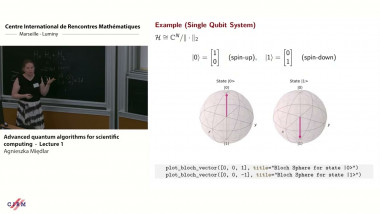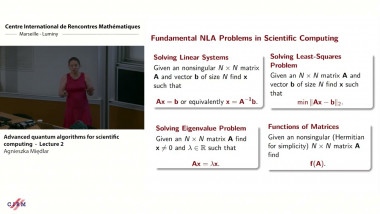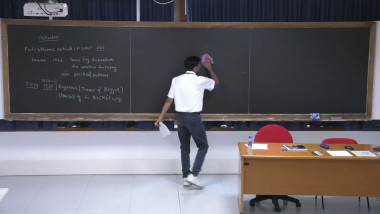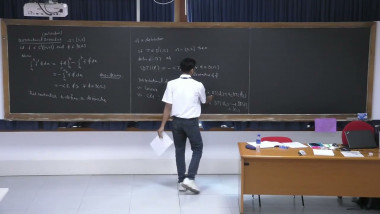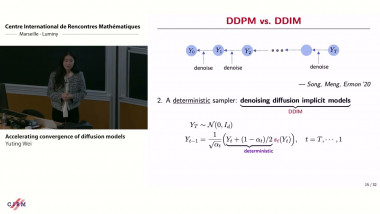Appears in collection : Geometric Sciences in Action: from geometric statistics to shape analysis / Les sciences géometriques en action: des statistiques géometriques à l'analyse de forme
One of the goals of shape analysis is to model and characterise shape evolution. We focus on methods where this evolution is modeled by the action of a time-dependent diffeomorphism, which is characterised by its time-derivatives: vector fields. Reconstructing the evolution of a shape from observations then amounts to determining an optimal path of vector fields whose flow of diffeomorphisms deforms the initial shape in accordance with the observations. However, if the space of considered vector fields is not constrained, optimal paths may be inaccurate from a modeling point of view. To overcome this problem, the notion of deformation module allows to incorporate prior information from the data into the set of considered deformations and the associated metric. I will present this generic framework as well as the Python library IMODAL, which allows to perform registration using such structured deformations. More specifically, I will focus on a recent implicit formulation where the prior can be expressed as a property that the generated vector field should satisfy. This imposed property can be of different categories that can be adapted to many use cases, such as constraining a growth pattern or imposing divergence-free fields.
